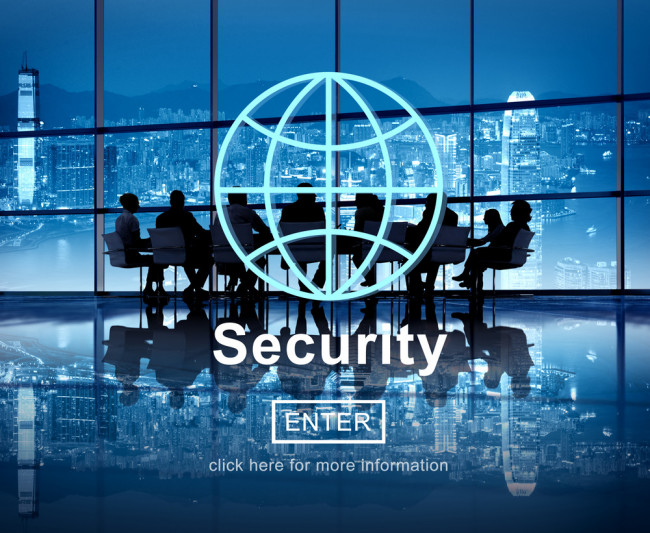Certified Information Security Manager (CIS M): Enhancing Leadership in Cybersecurity
M): Enhancing Leadership in Cybersecurity
The Certified Information Security Manager (CISM) course is a premier certification designed for experienced information security professionals looking to advance their careers into management and leadership roles. Offered by ISACA, CISM is recognized globally as a mark of excellence in information security management.
Participants in the CISM course gain a comprehensive understanding of information security governance, risk management, and strategic alignment with business goals. The curriculum covers four domains: Information Risk Management, Information Security Governance, Information Security Program Development and Management, and Information Security Incident Management.
CISM-certified professionals are equipped to develop and manage information security programs that align with an organization's overall business objectives. They possess the knowledge and skills to identify and assess information security risks and provide valuable insights into implementing effective security governance and risk management strategies.
One of the key benefits of the CISM certification is its recognition in the industry. CISM-certified professionals are highly sought after by organizations seeking competent leaders in information security management. The certification enhances career prospects, credibility, and earning potential.
With the rapid growth of cyber threats, the demand for qualified information security managers continues to rise. The CISM course empowers professionals to step into leadership roles confidently and make informed decisions to protect organizations from emerging cyber risks.
Certified Information Systems Security Professional (CISSP): Becoming a Globally Recognized Cybersecurity Expert
The Certified Information Systems Security Professional (CISSP) course is a prestigious certification offered by (ISC)², focusing on advanced knowledge and expertise in information security. CISSP is ideal for seasoned security practitioners, managers, and executives who want to demonstrate their mastery of a broad range of cybersecurity principles.
The CISSP course covers eight domains, including Security and Risk Management, Asset Security, Security Architecture and Engineering, Communication and Network Security, Identity and Access Management, Security Assessment and Testing, Security Operations, and Software Development Security.
CISSP-certified professionals are recognized globally as cybersecurity experts who possess the skills and knowledge to design, implement, and manage a robust security program. CISSP-certified individuals are equipped to protect organizations from sophisticated cyber threats, making them indispensable assets to the industry.
The CISSP certification is highly regarded by employers and opens doors to a wide range of career opportunities. CISSP-certified professionals can pursue roles such as security consultants, security managers, IT auditors, and chief information security officers (CISOs).
Furthermore, CISSP certification requires adherence to a code of ethics, emphasizing the importance of ethical behavior and responsibility in the field of information security. By earning the CISSP certification, professionals not only showcase their expertise but also their commitment to upholding the highest standards of cybersecurity.
ISO 27001 Lead Auditor Training: Mastering Auditing Techniques for Information Security Compliance
ISO 27001 Lead Auditor training is a specialized program designed for professionals seeking to become proficient in auditing information security management systems (ISMS) based on the ISO 27001 standard.
Participants in the ISO 27001 Lead Auditor training gain comprehensive knowledge of the ISO 27001 standard and its requirements. They learn the principles and best practices of auditing, including planning, conducting audits, and reporting findings.
The course also emphasizes the importance of impartiality and objectivity in the auditing process. Participants develop skills in evaluating an organization's ISMS, identifying areas for improvement, and providing valuable feedback for continuous enhancement.
By completing ISO 27001 Lead Auditor training, professionals acquire the expertise to conduct thorough audits of information security management systems. ISO 27001 lead auditor certification is a testament to their proficiency in ensuring compliance with the ISO 27001 standard and strengthening an organization's security measures.
Lead auditors play a critical role in assessing an organization's ISMS, identifying vulnerabilities, and recommending necessary improvements. Their audits help organizations achieve and maintain ISO 27001 certification, validating their commitment to protecting sensitive information and maintaining high standards of information security.
Certified Ethical Hacker (CEH): Unveiling Vulnerabilities to Strengthen Cyber Defenses
The Certified Ethical Hacker (CEH) course is tailored for individuals interested in understanding cyber threats from an ethical perspective. CEH provides hands-on experience in ethical hacking, penetration testing, and vulnerability assessment.
Participants in the CEH course learn to use various tools and techniques employed by malicious hackers to identify vulnerabilities in systems and networks. By adopting an ethical approach, CEH-certified professionals help organizations strengthen their cyber defenses and protect against potential cyberattacks.
The CEH curriculum covers a wide range of topics, including network scanning, enumeration, system hacking, malware threats, and social engineering. Participants gain practical knowledge in conducting ethical hacking assessments, analyzing security risks, and recommending appropriate security measures.
CEH-certified professionals are highly sought after by organizations seeking to proactively defend against cyber threats. By identifying vulnerabilities and weaknesses, CEH-certified professionals contribute to implementing robust security measures that protect sensitive information and critical assets.
Moreover, CEH certification validates an individual's commitment to ethical behavior and responsible practices in the cybersecurity domain. CEH-certified professionals adhere to a code of ethics that emphasizes integrity, confidentiality, and professionalism in their work.
CompTIA Security+: Foundational Training for a Secure IT Career
CompTIA Security+ is an entry-level certification designed for individuals starting their careers in information security. This foundational course covers essential cybersecurity concepts and practices, providing participants with a solid understanding of security principles.
The CompTIA Security+ course covers a wide range of topics, including network security, cryptography, identity management, access control, and risk management. Participants learn best practices for protecting information assets and implementing security measures to safeguard IT systems.
CompTIA Security+ certification is recognized and trusted by employers in the IT industry. By earning this certification, individuals demonstrate their commitment to maintaining a secure IT environment, making them eligible for entry-level positions in information security, IT support, and network administration.
Furthermore, CompTIA Security+ serves as an excellent stepping stone for professionals looking to advance their cybersecurity careers. The certification provides a strong foundation for pursuing more advanced cybersecurity certifications, such as CISSP or CISM.
In conclusion, top information security management courses offer valuable knowledge and certifications to professionals seeking to advance their careers in cybersecurity. From managerial roles to ethical hacking and entry-level cybersecurity, these courses cater to a wide range of interests and career goals. By enrolling in these courses, individuals can enhance their expertise, validate their skills, and become sought-after professionals in the dynamic and critical field of information security.











